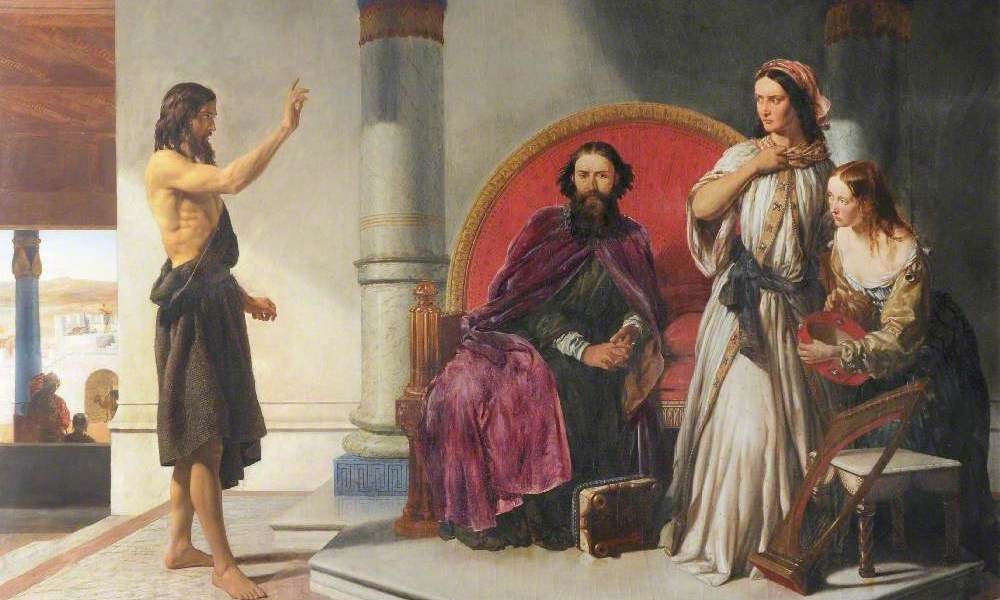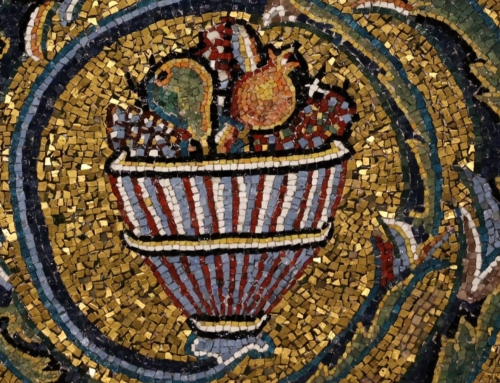King Herod and King Henry VIII would have been grand ol’ pals. Each had a certain affinity for unlawful marriages.
Recall that Saint John the Baptist was preaching against King Herod, telling him it was unlawful to take his brother’s wife as his own wife. John’s preaching in defense of lawful marriage had an intriguing effect.
In Herod’s unlawful wife, John’s words stirred up anger and hatred. It was she who wanted John arrested and imprisoned (cf. Mark 6:17–19).
In Herod himself, however, John’s words effected fear and delight. “Herod feared John, knowing that he was a righteous and holy man” and because he was a prophet, Herod actually protected John against his wife’s murderous wishes (Mark 6:20). We are told that Herod “liked to listen” to John—he delighted in hearing the prophet preach the Truth to him. Herod thought John worth keeping around, enough to oppose his wife for a time: “It is good to have God’s holy prophets around! I don’t want to get on God’s bad side!” he must have thought.
But Herod didn’t heed John’s warnings from God. Herod didn’t love the Truth enough to let it convert his heart. At his (brother’s) wife’s demand, John was beheaded.
***
Over a millennium later in 1509—on the Feast of St. John the Baptist—Henry VIII and Catherine of Aragon were crowned King and Queen of England (Henry VIII: Church, Court and Conflict, 21). King Henry VIII was a Christian man, such that in 1521 the Pope bestowed on him the title of Fidei Defensor—“Defender of the Faith.” Henry was a friend of the Truth.
After their marriage failed to provide a male heir, Henry decided that he must have a new wife to bear him a son. He asked the Pope to annul his marriage with Catherine. Rome said that the marriage was lawful and that what God has brought together, let no man put asunder (cf. Matt 19:6).
Henry disagreed. He wanted another “marriage” more than he wanted to heed the Truth. Still in need of an annulment, Henry decided to issue one for himself.
The English parliament passed the Act of Supremacy of 1534, which declared King Henry to be the “only supreme head [on] earth of the Church of England.” The Act of Supremacy served to officially sever all relations with the Pope. The Bishop of Rome had no authority in England as far as parliament was concerned.
Faced with the Church’s proclamation in defense of the sanctity of marriage, Henry chose to divorce the Church from the Truth: Henry thought the Church worth keeping around, but only as a kind of royal ornamentation. “It is good to have God’s holy church around! I am the Fidei Defensor, after all!” he must have thought. Henry didn’t want to be King without the Church, and so he made himself King of whatever it was that he called “his church.” Henry delighted in having the Truth around—“who would throw away the Church?”—but he wanted the Truth to be kept at arm’s length, lest his royal ruse be ruined.
***
King Herod and King Henry VIII would have been grand ol’ pals. Both had an appreciation for the Truth—and thought it worth keeping around—but neither of them loved the Truth enough to let it strike at their heart of hearts. A rebuke from God through his servants forces a decision. And Herod and Henry knew it too. Their indecision to be all-in or all-against the Truth proves as much. They did not love the Truth enough to allow themselves to be conformed to him who is “the way, the truth, and the life” (John 14:6).
But are we any better than these kings?
Printed on our money, you see “In God we trust.” Carved onto the Washington Monument, we find “Laus Deo.” Inserted into our pledge of allegiance, American schoolchildren recite “One nation under God.” In these election days—after your vote has been cast—an even more important decision now looms for each of us.
Will we just keep the Truth around—like Herod and Henry—as a hollow ornamentation for our nation? Or will we let him strike us to the heart?
✠
Image: John Roger Hervert, John the Baptist Reproving Herod







